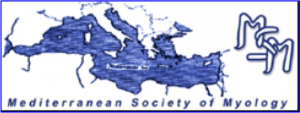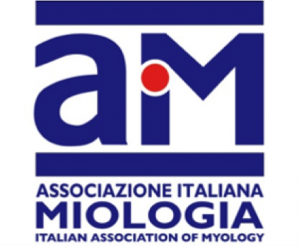Psychological and practical difficulties among parents and healthy siblings of children with Duchenne vs. Becker muscular dystrophy: an Italian comparative study
Lorenza Magliano 1 , Maria Grazia D’Angelo 2 , Giuseppe Vita 3 , Marika Pane 4 , Adele D’Amico 5 , Umberto Balottin 6 , Corrado Angelini 7 , Roberta Battini 8 , Luisa Politano 9 ;
Telethon GUP10002 Working Group: Melania Patalano 1 , Alessandra Sagliocchi 1 , Federica Civati 2 , Erika Brighina 2 , Gian Luca Vita 3 , Sonia Messina 3 , Maria Sframeli 3 , Maria Elena Lombardo 4 , Roberta Scalise 4 , Giulia Colia 5 , Maria Catteruccia 5 , Angela Berardinelli 6 , Maria Chiara Motta 6 , Alessandra Gaiani 7 , Claudio Semplicini 7 , Luca Bello 7 , Guja Astrea 8 , Antonella Zaccaro 9 , Marianna Scutifero 9
1 Department of Psychology, Second University of Naples (SUN), Naples, Italy; 2 NeuroMuscular Unit, Department of NeuroRehabilitation, IRCCS “E. Medea”, Bosisio Parini (LC), Italy; 3 Department of Neurosciences, University of Messina, Messina, Italy; 4 Department of Paediatric Neurology, Catholic University, Rome, Italy; 5 Unit of Neuromuscular and Neurodegenerative Diseases, Bambin Gesù Children’s Hospital, Rome, Italy; 6 Child Neuropsychiatry Unit, Department of Brain and Behavioral Sciences, University of Pavia, Pavia, Italy; 7 Department of Neurosciences, University of Padova, Padua, Italy and IRCSS San Camillo, Lido, Venice, Italy; 8 Developmental Neuroscience, IRCCS Stella Maris, University of Pisa, Pisa, Italy; 9 Cardiomyology and Medical Genetics, Department of Experimental Medicine, Second University of Naples (SUN), Naples, Italy
This study explored the burden in parents and healthy siblings of 4-17 year-old patients with Duchenne (DMD) and Becker (BMD) muscular dystrophies, and whether the burden varied according to clinical aspects and social resources.
Data on socio-demographic characteristics, patient’s clinical history, parent and healthy children burden, and on parent’s social resources were collected using self-reported questionnaires administered to 336 parents of patients with DMD (246) and BMD (90).
Parents of patients with DMD reported higher burden than those of patients with BMD, especially concerning feeling of loss (84.3% DMD vs. 57.4% BMD), stigma (44.2% DMD vs. 5.5% BMD) and neglect of hobbies (69.0% DMD vs. 32.5% BMD). Despite the burden, 66% DMD and 62.4% BMD parents stated the caregiving experience had a positive impact on their lives. A minority of parents believed MD has a negative influence on the psychological well-being (31.0% DMD vs. 12.8% BMD), and social life of unaffected children (25.7% vs. 18.4%).
In the DMD group, burden correlated with duration of illness and parent age, and burden was higher among parents with lower social contacts and support in emergencies. In DMD, difficulties among healthy children were reported as higher by parents who were older, had higher burden and lower social contacts. In both groups, burden increased in relation to patient disability.
These findings underline that the psychological support to be provided to parents of patients with MD, should take into account clinical features of the disease.






